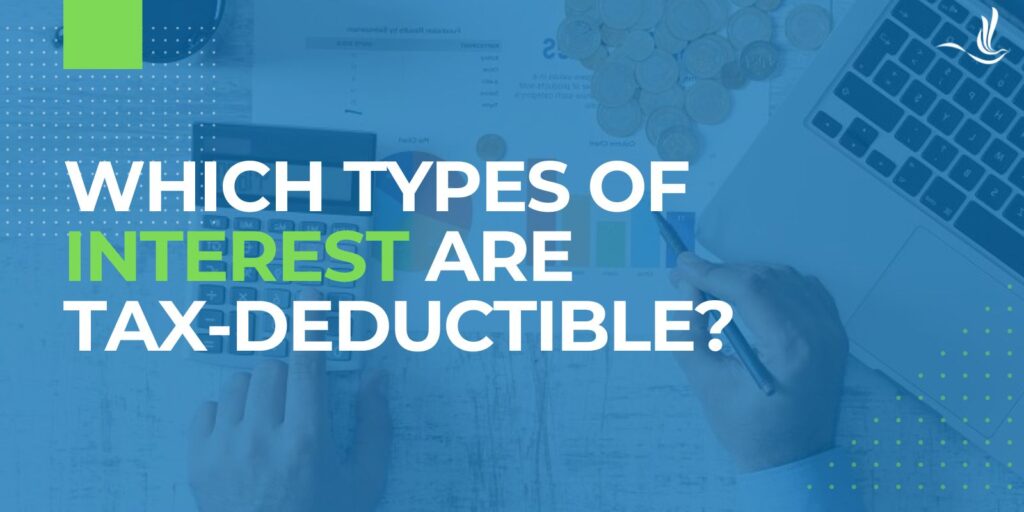
When it comes to managing finances, understanding the nuances of tax-deductible interest can be a valuable tool for maximizing savings. Interest payments on various loans and financial instruments can sometimes be deducted from taxable income. This provides individuals with an opportunity to reduce their overall tax burden. In this article, we will explore the types of interest that are commonly tax-deductible, shedding light on the potential benefits for taxpayers.
Mortgage Interest
One of the most well-known and widely utilized tax deductions is related to mortgage interest. Homeowners can deduct the interest paid on mortgages for their primary residence and, in some cases, a second home. The deduction applies to both fixed-rate and adjustable-rate mortgages, within certain limits. It’s important to note that there are caps on the total amount of mortgage debt eligible for interest deduction. These limits may change based on tax laws. In 2023, you can deduct mortgage interest paid on the first $750,000 of mortgage debt. The amount decreases to $375,000 if you are single or married filing separately. However, if you purchased your home before December 16, 2017, the limit is higher at $1 million, or $500,000 if you are single or married filing separately. To deduct mortgage interest, you’ll need to itemize your deductions on Schedule A. Form 1098, Mortgage Interest Statement, can help you report mortgage interest paid.
Student Loan Interest
For individuals carrying the financial burden of student loans, there’s a silver lining at tax time. The interest paid on qualifying student loans is often tax-deductible. The maximum deduction is typically $2,500. However, income limits may apply, and the deduction phases out for higher-income earners. Taxpayers should consult the latest tax laws and guidelines to determine their eligibility for student loan interest deductions. You should receive Form 1098-E, Student Loan Interest Statement, from your loan provider if you paid at least $600 in interest that year. You do not need to itemize your deductions to write off this expense. Instead, you can take it as an income adjustment on your tax return.
Business Loan Interest
Small business owners may find relief in the form of tax deductions on interest payments related to business loans. Whether it’s a loan to start a new venture, expand an existing business, or cover operational expenses, the interest paid on business loans is generally deductible. Businesses can deduct 30% of their AGI. Note that you can only claim this deduction if the loan was for business purposes, if you are legally liable for the debt, if you intend to repay the debt, and if you have a true debt-creditor relationship with your lender. Careful record-keeping is crucial to substantiate these deductions. You should seek advice from a tax professional to ensure compliance with tax regulations. To claim this deduction, you’ll need to do it on your business tax return. The actual form you will use will depend on your business structure. Be sure to check with a tax professional.
Home Equity Loan Interest
Interest paid on home equity loans and home equity lines of credit (HELOCs) may also be tax-deductible. Historically, taxpayers could deduct interest on home equity debt up to a specific limit. However, recent tax law changes may affect the deductibility of interest on home equity loans. For example, if you borrowed before December 16, 2017, then you can deduct interest on home equity loans up to $1 million if you are married and filing jointly. Single filers, and those who are married but file separately, can deduct up to $500,000. If you borrowed after December 16, 2017, then you can deduct interest on home equity loans up to $750,000 if you are married and filing jointly. Single filers, and those who are married but file separately, can deduct up to $375,000. To deduct home equity loan interest, you’ll need to itemize your deductions on Schedule A.
Tax Help for Taxpayers Who Have Interest Expenses
Taking advantage of tax-deductible interest can significantly impact an individual’s financial situation. Whether it’s the interest on a mortgage, student loan, business loan, or home equity loan, understanding the rules and staying updated on tax regulations is essential. While these deductions can provide relief, it’s important to exercise prudence and seek professional advice to ensure compliance with current tax laws and to make the most of available opportunities for tax savings. Optima Tax Relief is the nation’s leading tax resolution firm with over a decade of experience helping taxpayers.
If You Need Tax Help, Contact Us Today for a Free Consultation